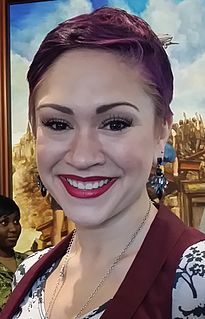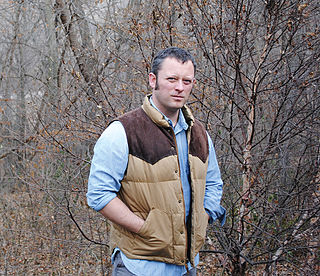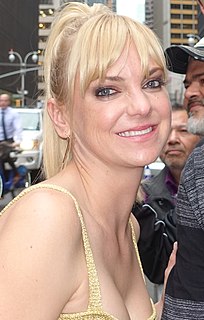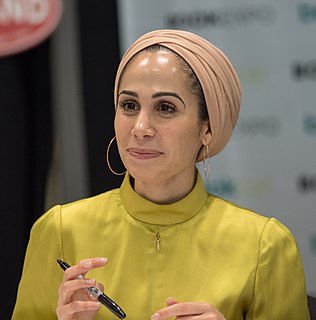A Quote by Robert Greene
Actually learning ancient Greek was a brilliant practice of mine because you'd sit there and you'd read a sentence and sometimes it would take you a day, an entire day to figure out one sentence. But it really trains you to be analytical, to think in a certain way to try and interpret what something means. So I've been thinking like that my whole life and then I love Machiavelli and I love thinking about politics that way. So it's sort of all that put together and then the good luck to meet a man who is sort of interested in the same thing.
Quote Topics
About
Actually
Analytical
Ancient
Ancient Greek
Because
Been
Brilliant
Certain
Certain Way
Day
Entire
Figure
Good
Good Luck
Greek
Interested
Interpret
Learning
Life
Like
Love
Luck
Man
Means
Meet
Mine
One Sentence
Out
Politics
Practice
Put
Read
Really
Same
Same Thing
Sentence
Sit
Something
Sometimes
Sort
Take
Then
Thing
Think
Thinking
Together
Trains
Try
Way
Whole
Whole Life
Would
Related Quotes
Spaces of liberation are, in a certain way, some kind of social spaces where people can not only get together and think about something else, but also act together. If you are thinking about an elemental solidarity, you are thinking about people acting together and taking decisions together, and thereby beginning to think about what sort of society they want to create. So, there is a need for liberated spaces; that is really difficult.
I read a ton of nonfiction. I tend to read about a lot of very extreme situations, life-or-death situations. I'm very interested in books about Arctic exploration or about doomed Apollo missions. I tend to read a lot of nonfiction that's sort of hyperbolic and visceral. And then I kind of draw on my own personal experiences and my own sort of generic life experience, and I kind of try to feed my day-to-day reality that I have with sort of high stakes reference points that I read about. They're things everyone can relate to.
I know it's good when I see a smaller film get recognized because it means more publicity for them. Any way to get the word out, I'm just learning about this. The end of this distribution sentence is the scariest part, which is when you start producing and directing. Now the movies are a little more like your children. You now spent years of your life and then it just dumps in one day and you think what happened? It doesn't always happen.
The way I've talked about my research process is that it was like magpies. I was just sort of moving through all these books and when something shiny would pop out I'd be like, Ooh, I love it! and I'd pluck it out. It's fun to figure out how to use those bits you really love - like I'd read about gold shoes with cork heels. Obviously, Margaret would have to wear those shoes.
Writing helped to have jobs that involved running around, pushing things like dish carts and wheelbarrows. It would be hard to sit at a desk all day, and then come to sit at another desk. Also, it helps to abandon hope. If I sit at my computer, determined to write a New Yorker story I won't get beyond the first sentence. It's better to put no pressure on it. What would happen if I followed the previous sentence with this one, I'll think. If the eighth draft is torture, the first should be fun. At least if you're writing humor.
What I don't like about teaching is hearing myself say the same thing. I mean, you just want to sort of shoot yourself after a while. But you don't have a million different ways of thinking about what you have been thinking about for many years. And then there's the truism that you're only as good as your students. If they're not into what's going on, it doesn't matter who you are.
I have a scenario but almost always it's entwined with at least one person to begin with. Then I sort of expand from there and I'm thinking about books novels. I've got these scrolls of paper that I hang up in my office and this is my idea room, my nightmare factory, and I have a big title at the top of the scroll and on the left hand side I have these character sketches on the characters, and then once I figure out who they are I can figure out what they want and once I figure out what they want I'm able to put obstacles in the way of that desire, and that's where plot springs from.
I turn sentences around. That's my life. I write a sentence and then I turn it around. Then I look at it and I turn it around again. Then I have lunch. Then I come back in and write another sentence. Then I have tea and turn the new sentence around. Then I read the two sentences over and turn them both around. Then I lie down on my sofa and think. Then I get up and throw them out and start from the beginning.
I write lyrics really fast. When it's time to write, I usually put them off until the very end and then when it's time to write I can just sit down: I sing the melody, whatever the melody is, because that's the first thing that's already been there for a long time; I start singing it and I start creating consonants and vowels; then they turn into words; then all of the sudden one sentence will happen; then that sentence will dictate how the rest of the sentences happen.
Sometimes you think, "Oh man, this is going to be a fantastic movie," and then when you see it put together, you're like, "Oh, huh. Well, that didn't turn out quite the way I thought." Sometimes you think you're part of a project and it isn't that great, and then it sort of becomes a pleasant surprise. But I think there's just too many elements that affect the tone of a movie, so I think even for a director, it may be hard to gauge that.
Synonyms know each other like old colleagues, like a set of friends who've seen the world together. They swap stories, reminisce about their origins and forget that though they are similar, they are entirely different, and though they share a certain set of attributes, one can never be the other. Because a quiet night is not the same as a silent one, a firm man is not the same as a steady one, and a bright light is not the same as a brilliant one because the way they wedge themselves into a sentence changes everything.






































